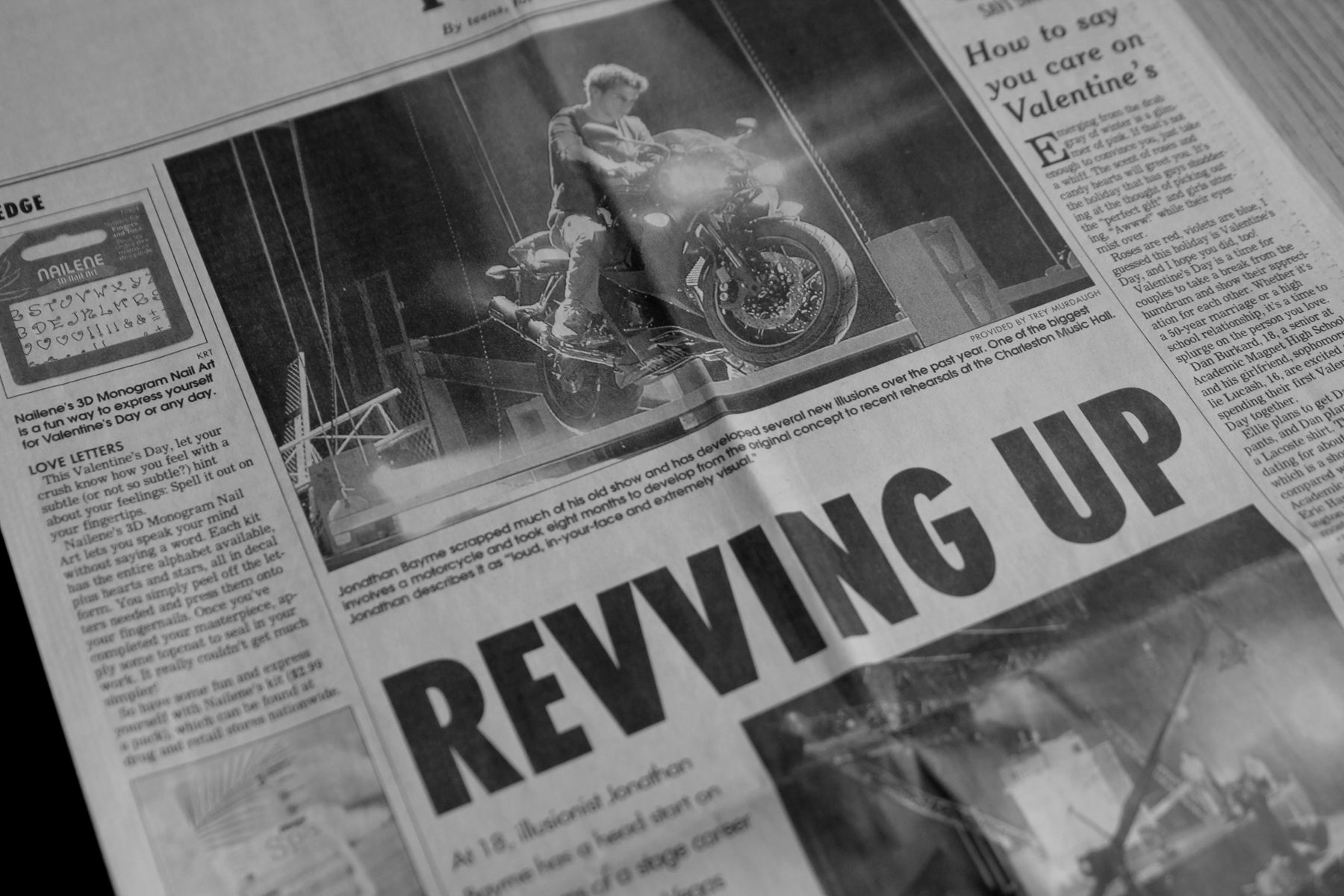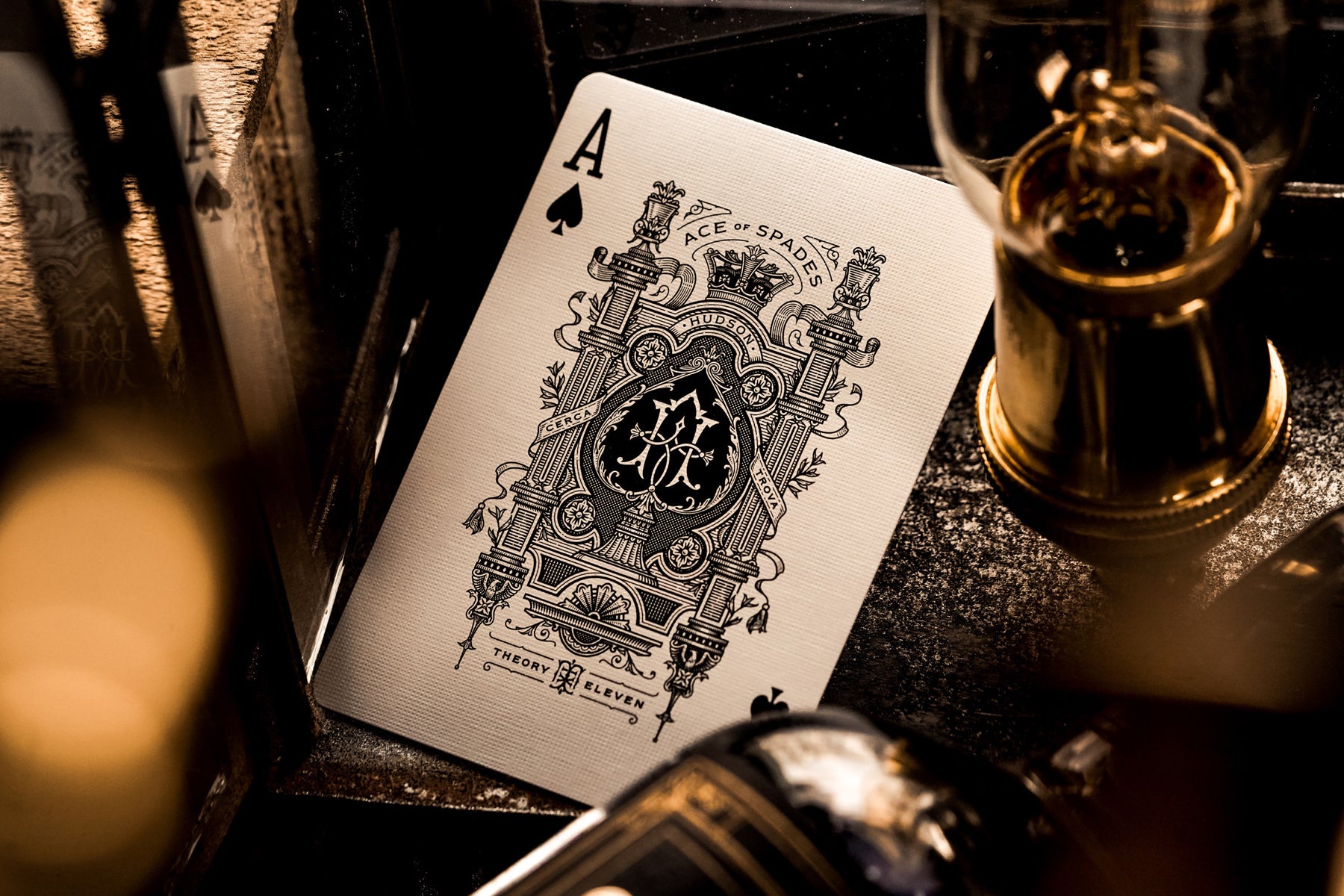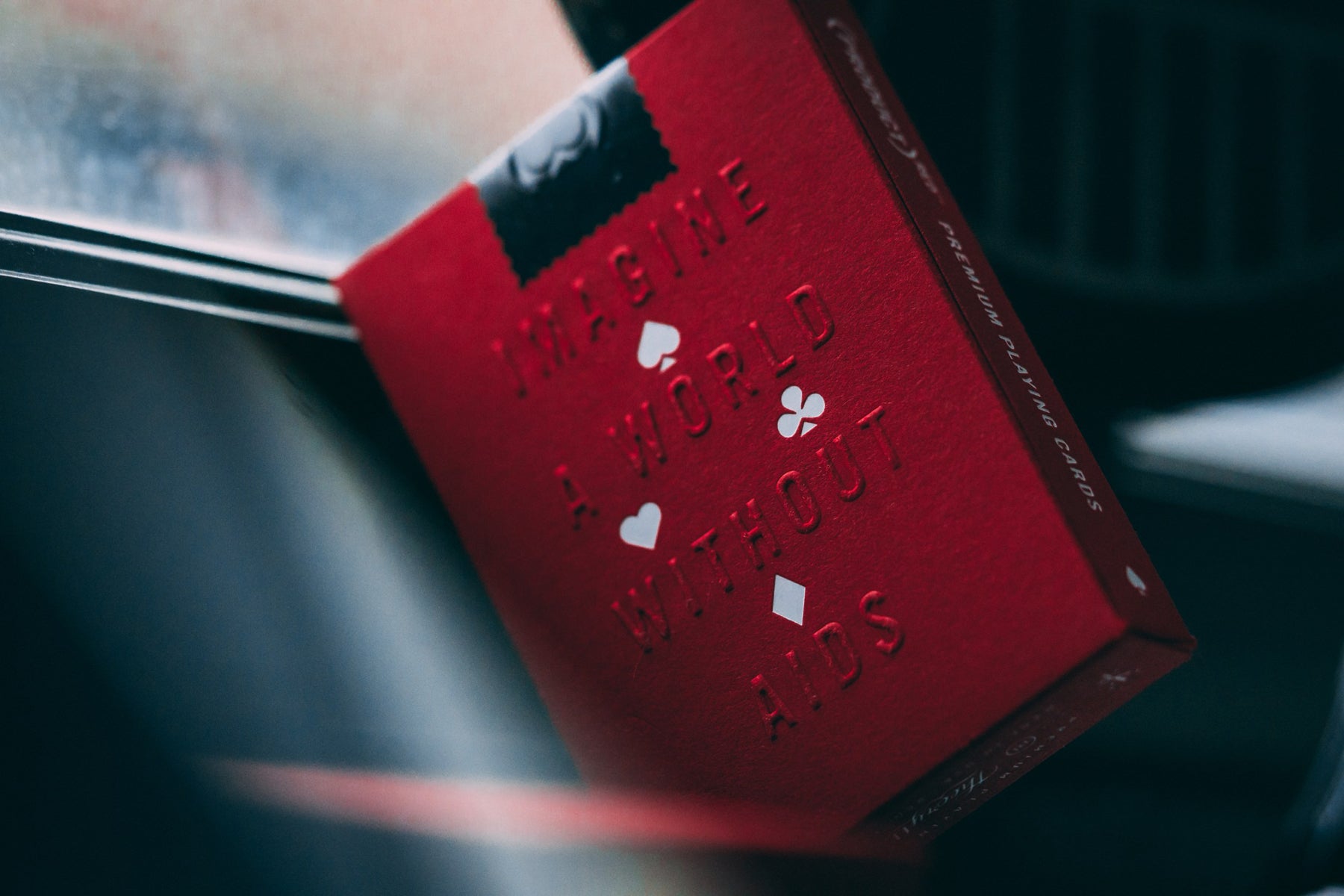By 13, Jonathan had already sold out a local theater for his first magic show. He is now a respected member of the global magic community and the founder of Theory11, a producer of high-end playing cards that partners with some of the world’s most renowned magicians, cardists, and illusionists. He’s even pals with David Copperfield. Through his company, he implores the world to see magic the way he does: as a sophisticated art form.
After attending the life-changing show, Jonathan was dismayed to find that his hometown, Charleston, South Carolina, was not the best springboard for a budding magician, especially in a pre-internet era. But even the closest source for magic—a store more than an hour’s drive from Charleston—carried simple tricks and nothing resembling the “cerebral art form” he sought. “I went through years of this persistent disappointment,” he says.


Then he saw his big opportunity: David Copperfield was on tour, and Charleston was a scheduled stop. At the show, Jonathan recalls, he waited in line to give David his DVD and introduce himself as a fellow magician. But it didn’t go as planned. He clammed up, nervous in the presence of his idol, and David signed the DVD thinking it was one of his own.
After a moment of devastation, Jonathan approached someone wearing a crew badge and introduced himself as a local magician wanting feedback on his work. The crew member, it turns out, was David’s longtime executive producer, Chris Kenner. Chris became a mentor to Jonathan that day and would later become a key player in Theory11’s operations. But back then, “I was this 13-year-old whippersnapper kid, and Chris would take my phone calls,” he says.
Magic as an art form
In 2008, Jonathan began designing playing cards, initially intended for magicians. “But that very quickly expanded,” he says. The cards garnered interest from the general public and fans of illustration, letterpress, and foil printing. The attention to detail and high-end finish of the cards was intentional—Theory11’s goal, Jonathan says, is to “push the art of magic forward.” And through beautiful design, he’s bringing his version of magic to the mainstream. The cards, though, are meant to be used. “We try to be respectful of the balance between functional and art,” he says.
Theory11 has become a prolific playing card producer, partnering on custom products with the likes of J.J. Abrams, Jimmy Fallon, and artist Curtis Kulig, as well as select charities. “We donate 100 percent of proceeds to charity: water playing cards to clean water operations in Sudan, Ethiopia, Uganda, and Sierra Leone,” says Jonathan. The brand also creates and sells magic trick video content, hosts a live show six nights a week at The NoMad Hotel in New York City, recently launched a live show in L.A., and has made several appearances on The Tonight Show.

For some magic creators, Theory11 is their primary source of income, Jonathan says. He describes the business model as working like a record label: his team of professionals acts like an A&R department, sourcing, producing, and packaging original tricks into a slick, buyable product. The website then promotes tricks and the magicians earn royalties on sales. In this way, Jonathan is helping legitimize the craft of magic as a viable career—and his real magic is in sharing that knowledge with other people.
Many of Theory11’s customers are servicemen and women, Jonathan says, because the tricks they learn are accessible to people they meet when posted in other countries. “You don’t have to have the same language or culture to understand a coin somehow vanishing or a dollar bill changing into a $100 bill,” he explains. To further the company’s mission to make magic accessible, Theory11 partnered with Target in 2018 to bring its cards and its board game, AMAZED—a collab with Neil Patrick Harris—to stores across the United States. For Jonathan, who previously only sold online, it was the first time he saw customers interacting with his products in person. That experience, he says, “is really amazing.”
Read more
- My Starting Over Story- I Cashed Out My 401(k) to Start a Business—And Save My Family
- How to Be an Expectant Mom with a Day Job
- Sharks and Shooting Hoops- Inside the Minds of Two School-Aged Founders
- Women Entrepreneurs We Love — Founder Stories
- Meet the Superwomen Breaking Barriers in the Comic Book Industry
- Why Some Creatives Escape to Tofino—and Nowhere Else
- Ashley Nell Tipton is Shaping Our Perception of Plus Fashion
- Overdraft- Starting Over—and Making Caramels—from Scratch
- Pecans and Politics- Inside the Mind of a 12-Year-Old Founder





